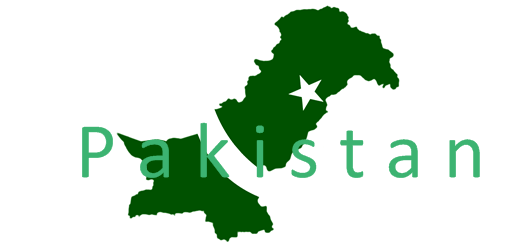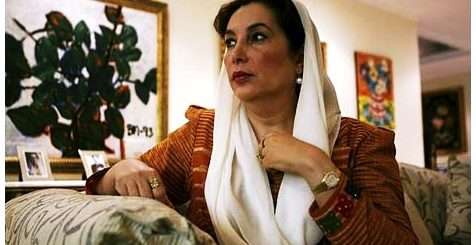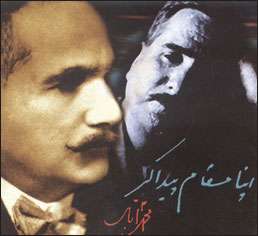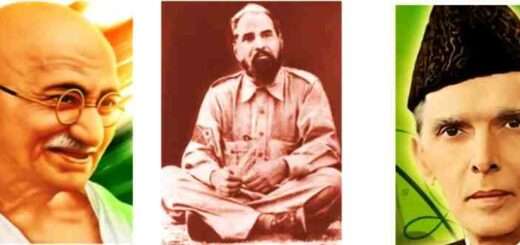Issues with Pakistani Foreign Policy – By F. R. Khan
Issues with Pakistani Foreign Policy – By F. R. Khan
As the Pakistani foreign policy enters the new century, it is confronted with a multitude of problems, whose resolution will eventually determine its vision and capacity to effectively portray Pakistan’s interest on the world scene. Pakistani foreign policy was created in the crucible of the ideological struggle between the United States and the erstwhile former Soviet Union that dominated the affairs of the world for the better part of the twentieth century. The Cold War had a defining influence on the implementation of Pakistan’s foreign policy and would be, to a significant degree, responsible for its straitjacketed sensitivities throughout its history.
The Cold War’s defining diplomatic raison d’ être was a world view based on different ideological premises (communism/authoritarianism versus capitalism/democracy) hinged on the perceptional notion of a balance of power between the United States and the Soviet Union. The United States and the Soviet Union had resurrected the old idea of balance of power, first advocated at the Treaty of Westphalia, ending the Thirty Years’ War (1618-48) in Europe. This balance of power would be later be codified into a diplomatic arrangement during the Congress of Vienna, in 1814-15, to govern the relations between the European nations in the aftermath of the French Revolution and the military defeat of Napoleon Bonaparte. The balance of power, as it was rationalized at the Congress of Vienna, was designed to prevent conflict and settle European diplomatic differences through consensus.
This balance of power arrangement would be institutionalized by the United States and the Soviet Union in Finland, agreed during the ratification of the Helsinki Accords of 1974. The Americans and the Soviets would legitimize the division of Europe into an American sphere of influence and a Soviet sphere of influence and to govern their relations in the rest of the world by respecting each other’s sphere of political interests. However, when Pakistan entered the world scene, the United States and the Soviet Union were still in the early formative stages of their confrontational policies and were engaged in carving a nichE’ for their respective political ideologies in the post-Second World War world. Pakistani foreign policy, immediately upon the creation of Pakistan, was presented with the task to define Pakistan’s interests on the world scene. Given the emerging contours of the international politics, dominated as it was by the American-Soviet rivalry, Pakistani foreign policy was being pressurized to make a decision in favor of either the United States or the Soviet Union.
In either case, Pakistan was destined to adopt the ideological banner of its prospective mentor and tailor its foreign policy accordingly. It would not have mattered much as to which side Pakistan would eventually side with, because the execution of the Pakistani foreign policy was flawed from its inception; it was destined to be marred by policies of confusion and contradiction. The initial problem confronted in the creation of the Pakistani foreign policy was how to balance its raison d’ E’tat with its founding ideology, which was predicated on the universalism of an Islamic/Muslim identity. The Pakistani constitution of 1956, and later the constitution of 1973, would prove to be the greatest obstacles towards rationalizing an effective Pakistani foreign policy.
The most important question in Pakistani diplomacy, which hinders the coherence of an effective, logical and insightful implementation of Pakistani interests in international relations, is the debate within the Pakistani diplomacy itself between the policies of raison d’ E’tat and the universalism of Islam. The constitution of 1956 had made Pakistan into an Islamic republic and the reconstituted constitution of 1973 had mandated that its policies be in accordance with the provisions of Islam. In totem, both the constitutions of 1956 and 1973 only managed to place Pakistan in a position of diplomatic inflexibility, which undermined its options on how to articulate its foreign policy concerns. It has been the lack of a credible answer to this debate, which has posed the most serious challenge towards the creation of a realistic Pakistani foreign policy.
A nation’s foreign policy is a reflection of its domestic political philosophy. Furthermore, the effectiveness of a nation’s foreign policy is proportional to the cohesion and clarity of its domestic political beliefs. Pakistani foreign policy has always oscillated between the considerations of Realpolitik determining the raison d’ E’tat of Pakistani foreign interests and the appeals to the morality of Islamic/Muslim values. Since the political debate in Pakistan has never adequately settled the issue of what is the national characteristic of Pakistani polity and what is its ideology; is it Islamic or secular; or a progressive moderate Muslim republic or a theocratic state; is it constitutional or an autocratic nation, this has proved to be the Pakistani foreign policy’s most glaring failure.
This lack of determination is reflected in the Pakistani foreign policy, which at times exhibits an acute susceptibility of being its own worst enemy. The opaque nature of the Pakistani foreign policy is directly related to its inability to harmonize a sense of compromise, between its Realpolitik imperatives and its commitments to the Islamic ideology as the underlying principle of its foreign policy machinations. The lack of this answer is clearly evident in the modus operandi of Pakistani foreign policy and explains its inability to define it diplomatic vision; a vision that can convincingly project and protect Pakistani interests in the world.
International relations maneuver on the logic of perceptional reactions to tangible considerations. The international relations exist within a fluid environment, where no state exists in isolation and the interaction of the states is based on the underlying, immutable, principles of diplomacy “ raison d’ E’tat. Diplomacy, which characterizes international relations, is defined by consensus and not conflict. Contrary to the popular believe, international relations are not based on the political Darwinian notions of a zero-sum game confrontation, but rather on the ability to manage embryonic crisis from escalating into inflexible diplomatic situations.
International diplomacy operates, as its premise, on the twin themes of raison d’ E’tat and on the cold calculating logic of Realpolitik. Though the two may seem to have similarity of purposes, there is a distinct difference in their rationales and it is usually when Realpolitik is complimented with a raison d’ E’tat that a nation’s foreign policy exhibits a well defined articulation of its intentions. Realpolitik is not a Machiavellian exercise in the manipulation of power, as it has been understood, but an ability to accommodate the changes in the international relations’ regime by accepting the fait accompli of a prevailing situation. The truism that Realpolitik is based on the calculations of power is a valid one, but the success to Realpolitik’s effective implementation lies in adjusting to the changing international situations without limiting one’s options and without posing a challenge to the existing equilibrium of international affairs. In other words, Realpolitik is the art of the possible; Realpolitik is the ability to realistically adjust to the various changes in international balance of power arrangements by keeping the political interests of the state supreme at all times.
On the other hand, the term raison d’état denotes a national interest to which all other considerations should be subordinated. A nation’s raison d’ E’tat should be based on well-reasoned political imperatives and not on the merits of political ambiguity. Raison d’ E’tat is defined as a reaction to the perception of events, which have the ability to influence a state’s behavior, and options, in dealing within the regime of international relations. Furthermore, national interests, or raison d’ E’tat, should be flexible enough to be amended to a given situation and should increase the options available to a state, in dealing with foreign policy issues, and not limit them to the detriment of a nation’s ability to project its interests in international affairs.
The doctrine of raison d’ E’tat was the brainchild of a Frenchman by the name of Armand Jean du Plessis, otherwise known to history as Cardinal Richelieu. The philosophy of raison d’ E’tat, as it was suggested by Richelieu, was in response to a question of how to manage the affairs of the state within the restrictions of a religious obligation. Cardinal Richelieu articulated the idea of raison d’ E’tat, when he foresaw a clash of interests between the universalism of the Catholic Church’s religious influence in the politics of France and the church’s insistence that national politics of the European states be subordinated to religious considerations. Even though Richelieu was a cardinal in the service of the Catholic Church, he had realized that religion should be separated from foreign policy considerations of France, because a religion’s orthodoxy restricted a nation’s sense of flexibility in dealing with political considerations predicated on a state’s willingness to compromise.
According to Richelieu, national interest must never be subordinated to a religious goal and national interest must be realistically pursued without any paeans to an ideological fanaticism or a religious zeal. The underlying assumption, of Cardinal Richelieu, behind this was that religion was absolute in its orthodoxies and it did not allow an option of compromise in its expectations, whereas politics was all about compromising and being flexible enough to amend to the changing political realities of the day. Richelieu, as he articulated the logical necessity of a raison d’ E’tat, did so because he considered religion to be inflexible and counter-productive toward a state’s interests. Since religion was based on a law of morality, it automatically limited certain actions due to their immoral connotations and in fact, straitjacketed a politician/diplomat’s ability to manipulate a situation in his country’s favor.
Cardinal Richelieu himself stated his policy of serving the national interest at expense of his religious obligations to the Church by stating that, œman is immortal; his salvation is in the hereafter, but the state has no immorality; its salvation is now or never. In other words, Richelieu was of the opinion that raison d’ E’tat must be divorced from religion, because the two were incompatible and the existence of a nation; the successful implementation of its policies was predicated on its ability to compromise and accommodate its interests without being restricted by the inflexibility of a religious doctrine of absolutism.
The question, which prompted Richelieu to advocate the logic of raison d’ E’tat “ the separation of religious considerations from politics, has been the curse of the Pakistani foreign policy and the principle reason behind its mediocre performance on the international stage. Pakistani foreign policy has no raison d’ E’tat, which can guide the creation of its foreign policy objectives, because its domestic politics are divided over its national identity. This national confusion, in the domestic politics, is reflective of the Pakistani diplomacy, whose international appearance is one of reactionary, adventurous, destabilizing and schizophrenic inconsistencies. The question, which Cardinal Richelieu was able to answer and one, which seems to evade Pakistani foreign policy apparatchiks, is how strike a balance between Pakistan’s foreign policy interests and the universalism of Islamic compulsions, which Pakistani foreign policy attempts to appease by its deliberations.
Pakistani foreign policy mandarins, but more importantly Pakistani politicians, have to realize that religious universalism; Pakistan’s policy imperatives being influenced by Islamic/Muslim thought and ideals are the main reason behind Pakistan’s foreign policy failures. Pakistani foreign policy has a schizophrenic tendency in its articulations and lacks a viable raison d’ E’tat, because it is confused and fragmented. The creation of Pakistani foreign policy has never been coherent, because it is influenced not only by the foreign office in Islamabad; it is also created by the Inter-Services-Intelligence (the military intelligence of the Pakistani armed forces); the various militant/Islamic jehadi groups, which operate from the soil of Pakistan; domestic political considerations of exiled and discredited politicians (like Benazir Bhutto, Nawaz Sharif and Altaf Hussain) to advance their own domestic interests in Pakistan. Pakistani foreign policy has no raison d’ E’tat to pursue, because it has been held hostage to the general sense of confusion prevailing in Pakistani domestic politics.
As mentioned earlier in this article, since a nation’s foreign policy is the reflection of its domestic politics, Pakistan suffers from an incoherence of rationality in its foreign policy. The reason, why Pakistan is finding itself increasingly difficult to voice its concerns in the forum of international opinion is, because its domestic political situation hinders all attempts to create a logical foreign policy, which will help the strategic interests of Pakistan instead of undermining them. The reason being that Pakistani options, in its international relations, are held hostage to its commitments to Islamic/Muslim contemplations of its foreign policy.
Pakistani foreign policy, if it wants to reverse its slide into a diplomatic void, will have to start with putting its national politics under the writ of Islamabad and stop being dictated by the various entities, which influence the Pakistani political scene. Pakistan will have to separate the universalism of the Islamic influence from its political discourse; and if that is impossible, it will have to maintain a polite, but firm indifference to the universality of Islam, while it pursues its foreign policy objectives with a cold calculated logic of Realpolitk and its raison d’ E’tat.
Pakistan should adopt independence in its foreign policy options, by realistically following its interest, when those interests present themselves. It should not narrow or restrict its foreign policy opportunities by making any unnecessary declarations or hinting of support, to another nation or a group, just because of its religious obligations. It should judge its foreign policy options on the basis of the uniqueness of the opportunity and should not be guided by appeals to a religious brotherhood or by a devotion to the cause of religion.
In this sense, the activities of the various Islamic militant/jehadi groups have to be curtailed, because they are, by their actions, creating the impression that Pakistani foreign policy is harboring and supporting destabilizing influences. The regime of international relations frowns upon disruptions in international affairs. Pakistani will never be able to effectively reverse its diplomatic isolation and end it unless it is seen as stabilizing, instead of a destabilizing, force in the world. Since it seems to the international community that Pakistan has no writ of authority over its own territory to stop the activities of these groups, the international opinion has opted to put a cordon sanitairE’ around Pakistan in guise of international sanctions. The idea behind this international action is to limit Pakistan’s destabilizing influence in international affairs.
Hence, Pakistan in order to end its international isolation will have to implement a regime, which lessens the specter of political disunity and religious/ethnic sectarianism in Pakistan. Religious sectarianism has been the bane of Pakistani foreign policy, because it has been chiefly responsible for internal political fragmentation threatening the Pakistani polity. Pakistan will have to introduce harsh, even draconian, measures to stem tide of religious and ethnic intolerance, which is manifesting itself in Pakistan. In an ominous sense, Pakistan will have to cross the proverbial Rubicon and strictly enforce the rule of the law and restore the traditional writ of the state’s authority.
However, Pakistan will be faced with an acute dilemma once it embarks on this path towards national renaissance. Pakistan is already under a host of international sanctions due its failure to have a democratic system of government and this course of action will only worsen Pakistan’s lot in the world. Pakistan’s ability to get the periodic infusions of international monetary aid, to keep its anemic economy from breathing its last, depends on its ability to restore democracy in the shortest time possible. This is the challenge confronting the Pakistani foreign policy presently: how to satisfy the demands of the international community while resorting to non-democratic means to restore the writ of the state in Pakistani civil society.
The irony of the matter is that if Pakistan tries to re-establish its writ of authority through democratic means, it is destined for failure, because domestic politics in Pakistan are averse to the idea of a plurality of political opinions. On the other hand, if Pakistan reverts to desperate policies to restore its writ – policies lacking any vestiges of a democratic practice, it will merely succeed in isolating itself more in the affairs of the world. Pakistan domestic policies, which is reflective of its foreign policy confusion, is in an unenviable position, because religious/provincial/ethnic intolerance is destroying Pakistan as a nation state and only policies of intolerance, to stamp out the evil of ethnic and religious sectarianism, by a strong willed government apathetic to the democratic sensibilities can save Pakistan from its own past misdeeds.
This dilemma confronting the effective articulation of the Pakistani foreign policy is only an auxiliary to the major problem confronting Pakistan. The recent change of directions in the Pakistani foreign policy towards the issues of reviving Pakistan’s sagging economic fortunes is overtly dependent on its ability to ensure a sense of political stability in its domestic affairs; stability that will attract and keep foreign investments in Pakistan.
Consequently, like a reoccurring nightmare, Pakistani foreign policy’s ability to project the interests of Pakistan are directly proportional to its domestic problems and unless Pakistan restores a semblance of a credible law and order environment domestically, Pakistani foreign policy will be clueless as how to project Pakistan in a positive light on the international scene. It would be of great of help to Pakistan if its foreign policy desists from policies of Islamic universalism and stops trying to present Pakistan as the last remaining champion of Muslim/Islamic moral values in the world. Pakistan should, instead, base its policies on the precepts of Realekonomik “ economic realism and pursue only those foreign policy objectives, which puts the sovereign economic interests of the Pakistani state before all other considerations.
Therefore, the Pakistani foreign policy, but more importantly the nation of Pakistan, has to settle the debate concerning its raison d’ être “ is it an Islamic or a secular state. Pakistani foreign policy will be nothing more than an institutionalized set of well documented mishaps unless its answers this question; an answer that will lend coherence to its interests and objectives on the international scene. The world will not respect Pakistan, as a nation-state, unless the Pakistanis learn to respect themselves first. The question is do the Pakistanis know who they are themselves and do they have the courage and the confidence to tell the world what and who they really are and what they believe in?












